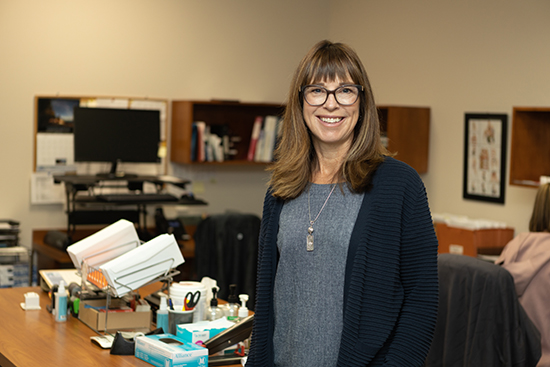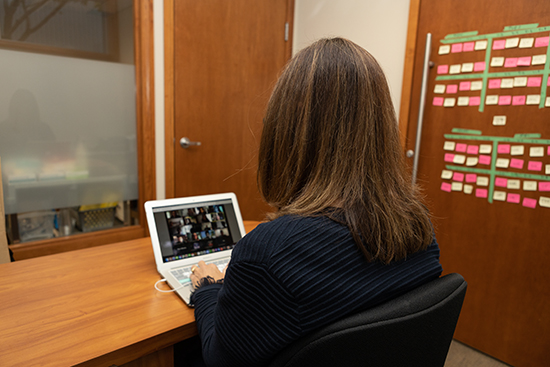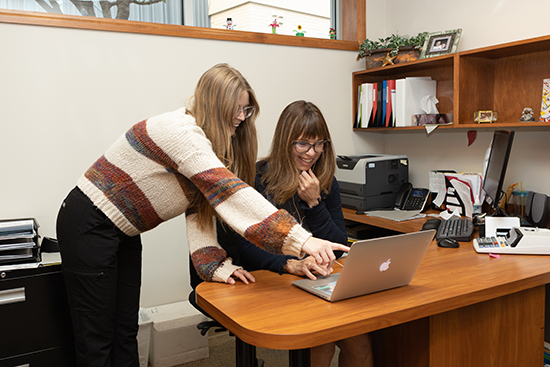A new mindfulness group for youth led by family doctors is making a tremendous difference for adolescents in the Comox Valley by equipping them with techniques for managing stress, pain, and anxiety as well as preventing depression relapse.
Thirteen youth between 15-19 years participated in the eight-week pilot program led by Dr Janice McLaughlin, who is passionate about supporting teen mental health. After participating in the program in spring 2021, one youth finished an exam without a panic attack. Another youth said they used belly breathing to help manage challenging situations or interactions.
“There was overwhelmingly positive patient feedback, and proven viability for delivery within family practice,” says Dr Janice McLaughlin, family doctor with the Comox Valley Division of Family Practice. “The group setting works, the kids are engaged, the online setting works for them.”

(Photographed above: Dr Janice McLaughlin.)
As part of the program, the teens participated in virtual group medical visits led by family doctors and built their own self-care plans on the Padlet online platform. They also used Padlet to share observations from their mindfulness practices, where the care team promptly responded to their posts throughout the week. On the day of each visit, the care team texted participants from their electronic medical records to promote engagement. The team also sent weekly emails to the teens with information with links to meditations and information about practicing at home. Participation rates were high, with 10 or 11 youth attending each weekly meeting.

(Photographed above: Dr Janice McLaughlin.)
The program is based on the BC Children’s Hospital’s Mindfulness, Awareness and Resilience Skills programs for Adolescence (MARS-S) which was adapted to the online setting to meet the needs of teens in the community during the pandemic. Supported by the Rural Education Action Plan, Dr McLaughlin completed 16 weeks of online training with Drs. Dzung Vo and Joanna McDermid at BC Children’s Hospital.
After training, Dr McLaughlin reached out to Audrey Jones, GPSC practice support coach with Island Health Authority, for support.
“Audrey was super excited to help me,” says Dr McLaughlin. “She listened to me and turned my ideas into a manageable plan with a timeline. The GPSC Practice Support Program was great, it provided coaching and paid for me to add 15 hours of admin time to help with the program. It also paid for me to have a second physician in the room as a mindfulness facilitator when we delivered the program to the kids. Our medical office assistant, who also practices mindfulness, got the intake interviews organized as well as the communications with the families.”

(Photographed above: Dr Janice McLaughlin and MOA, Tanisha Adams.)
Dr McLaughlin herself has been practicing mindfulness for the last 10 years.
“When facilitating mindfulness, it's important to do that from a place of personal practice,” she says. “With youth in particular, they are very aware of authenticity.”
Dr McLaughlin also assessed the program’s operational and financial sustainability for delivery in family practice using fee-for-service billing. The team billed group medical visits for eight weeks, which covered the family physician income and paid for the medical office assistant.
Dr McLaughlin plans to continue offering the program with the next one set for the end of January 2022. The team has already received referrals, and they anticipate receiving more from high school counsellors, community physicians, coaches, and others who work with youth.
